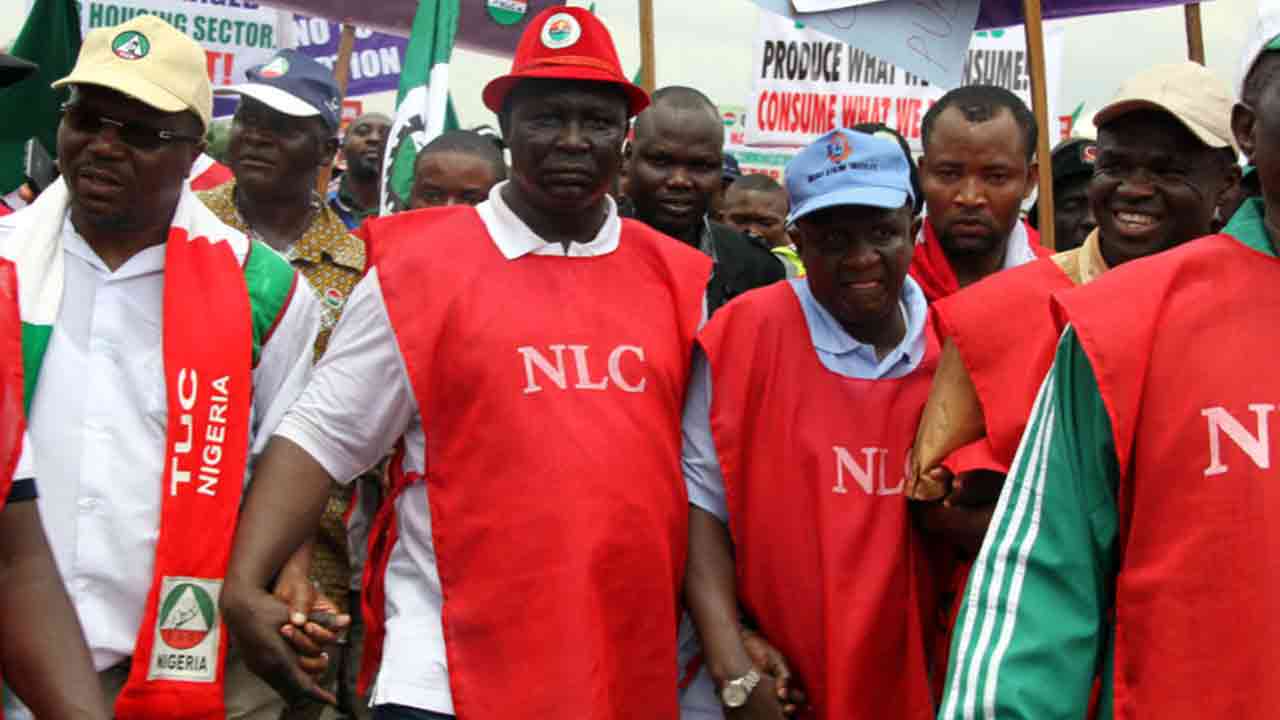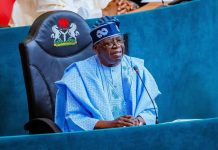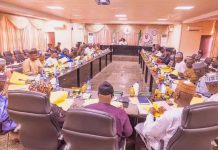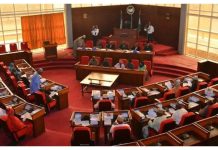The organized labour comprising of the Nigeria Labour Congress, NLC, the Trade Union Congress, TUC, and the United Labour Congress, ULC, have threatened to shut down the economy on January 23, if President Muhammadu Buhari fails to transmit to the National Assembly an executive bill for the enactment of N30, 000 as the new National Minimum Wage.
Labour argued that the tripartite process leading to the agreement by the social partners on the new national minimum wage was thorough with all participants- labour, government and employers of labour having input, hence the President has no reason whatsoever not to transmit the N30,000 to the legislative arms for legislation.
Labour said in the course of deliberations over the new minimum wage, it initially demanded for N56,000 as the new minimum wage, then backed down to N30,000.
The NLC president Ayuba Wabba accused the government of dilly-dallying on the issue, which he said had strained government -labour relations and warned it could trigger a major national strike.
Towards nipping in the bud the threat of national industrial action by labour, the Federal government agreed on Memorandum of Understanding (MoU) with the leadership of Nigeria Labour Congress (NLC) and Trade Union Congress (TUC) to transmit the new national minimum wage bill to the national assembly on or before January 23rd.
Minister of Labour and Employment Chris Ngige assured labour leaders that the federal government will try to implement religiously all the processes to transmit the bill within the stipulated time.
He said, “We have a target time of January 23, 2019 and we hope that all things being equal, the executive will be able to do so. We will take on the statutory meetings of Federal Executive Council (FEC), National Economic Council (NEC), and the Council of States to enable us transmits the bill on the new national minimum wage.”
The minister commended the leadership of the organized labour for their cooperation and understanding and appealed to them to shelve their threats of protests and strike in line with the signed MoU.
NLC President Ayuba Wabba commended the minister for his conciliatory role which led to the signing of the MoU, which he said involved a lot of sacrifices and understanding from both sides.
Wabba said, “We are committed to the process and we hope that this timeline will be respected and we will put this across to our organs to be able to conform to all the details of the Memorandum of Understanding.”
The NLC President said further that the congress agreed with the timeline with the understanding that the National Assembly will be back from their recess on the 16th, saying ” we said on or before 23rd the bill, all things being equal, must be transmitted to the national assembly and we hope from there because we know also that the national assembly are desirous of making sure that workers have a decent wage and they will also be able to do the needful.
Sequel to the signing of the MoU, President Muhammadu Buhari, Wednesday, inaugurated the Bismarck Rewane-led Technical Advisory Committee on the implementation of a new National Minimum Wage.
The President said the committee would recommend “modalities for the implementation of the new minimum wage in such a manner as to minimise its inflationary impact, as well as ensure that its introduction does not lead to job losses.”
“The work of this technical committee will be the basis of a Finance Bill which will be submitted to the National Assembly, alongside the Minimum Wage Bill,” he added.
In a prompt reaction to the committee’s inauguration, President of Nigeria Labour Congress (NLC), Ayuba Wabba said that the newly inaugurated Federal Government’s Advisory Committee on new minimum wage has no bearing on the agreement reached on the minimum wage with the organized labour.
Wabba also said that the advisory committee would not in any way affect the timeline of Jan. 23 agreement reached between organised labour and the Federal Government on the transmission of Minimum Wage Bill to the National Assembly.







